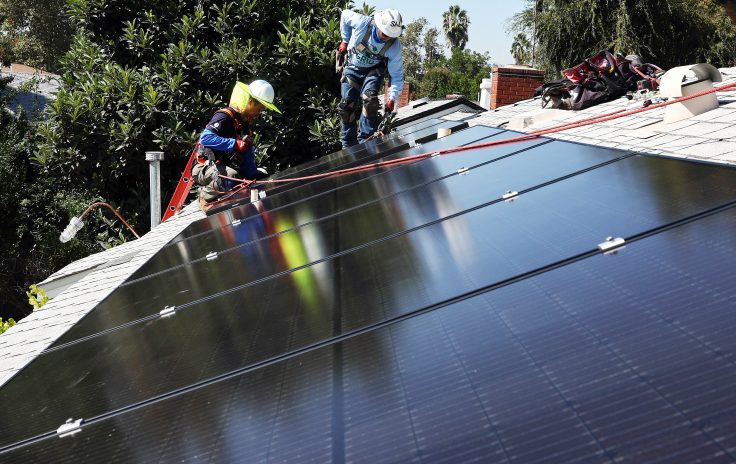California governor Gavin Newsom is standing by the state’s soon-to-be-implemented "equitable" policy to base electricity bills on income, rather than usage, even as public and political opposition to the idea builds in the Democratic coalition.
A spokesman for the governor said on Tuesday that Newsom is looking forward to seeing a final proposal from the state's utilities commission "that is consistent with" the 2022 law that required the agency to devise an income-based billing system.
"California must combat climate change by rapidly expanding the use of clean electricity in our vehicles and buildings, while at the same time making it more affordable for low-income Californians," the spokesman said in a statement.
Newsom’s commitment to California’s income-based electricity billing plan followed a press conference by a group of Democratic lawmakers who want to reverse the policy, after they voted in its favor as part of a 2022 budget bill. Citing public outcry, they condemned the plan as another price hike for Californians’ astronomical energy bills that would punish conservation-minded households while also subjecting everyone to invasive income checks.
"Californians are fed up. My constituents are pissed off," Democratic assemblyman Marc Berman said at a Tuesday presser. "I know because they told me over and over again at every community coffee that I had in the fall and winter. Their rates keep going up."
This emerging rift over a policy that’s been praised by supporters as an "equitable" boost for the state’s transition to zero-emission electricity is a rare hiccup in the Democratic supermajority’s typically lockstep approach to energy mandates. Opponents include tenants’ advocates, who say the extra fees will add to renters’ already sky-high living costs, environmental groups, and even supporters of solar energy. Other powerful environmental groups, including the Natural Resources Defense Council, support the income-based system.
The growing public pressure over the issue may signal that Californians, a majority of whom said last year that environmental regulations are worth the cost, have hit a limit to their tolerance for Sacramento’s energy policies. Electricity rates have risen nearly 70 percent since 2010, when the state started to break from fossil fuels, and California households pay nearly 83 percent more than the average for homes elsewhere in the United States.
"Newsom and the public utilities commission hide behind environmentalist values to justify imposing an unfair burden on any Californian who doesn’t qualify for subsidies—and in fact makes it more expensive for everyone else," said Edward Ring, cofounder of the California Policy Center.
The state’s utilities commission has yet to decide how much the income-based fee would be determined. The latest proposals vary between an extra $30 to $50 per month for Californians who aren’t poor enough to qualify for subsidies. Utility companies initially pitched charges of up to $128 for higher-income households, but walked those back after public outcry. The agency, an unelected body of regulators, is tasked with settling on a final fee and implementing it by summer.
Jenn Engstrom, the state director of the California Public Interest Research Group, which opposes the income-based fee system, warned of its added costs for Californians and said it would "punish those of us committed to energy conservation and efficiency."
"This not only diminishes consumer control over energy bills, but a system that incentivizes high energy consumption could increase costs on the entire system and lead to higher electricity bills for everyone," Engstrom said.
Terrie Prosper, director of news and outreach for the state’s utility commission, defended the plan as a "critical step toward our climate goals" because electric vehicle owners will end up paying less to charge their cars and Californians can more cheaply use electric heat pumps to warm their homes.
The agency is "analyzing all the proposals as well as other evidence in this proceeding to make sure that implementation of [the law] will equitably distribute costs and facilitate the achievement of our state’s clean energy and climate goals," Prosper said.
